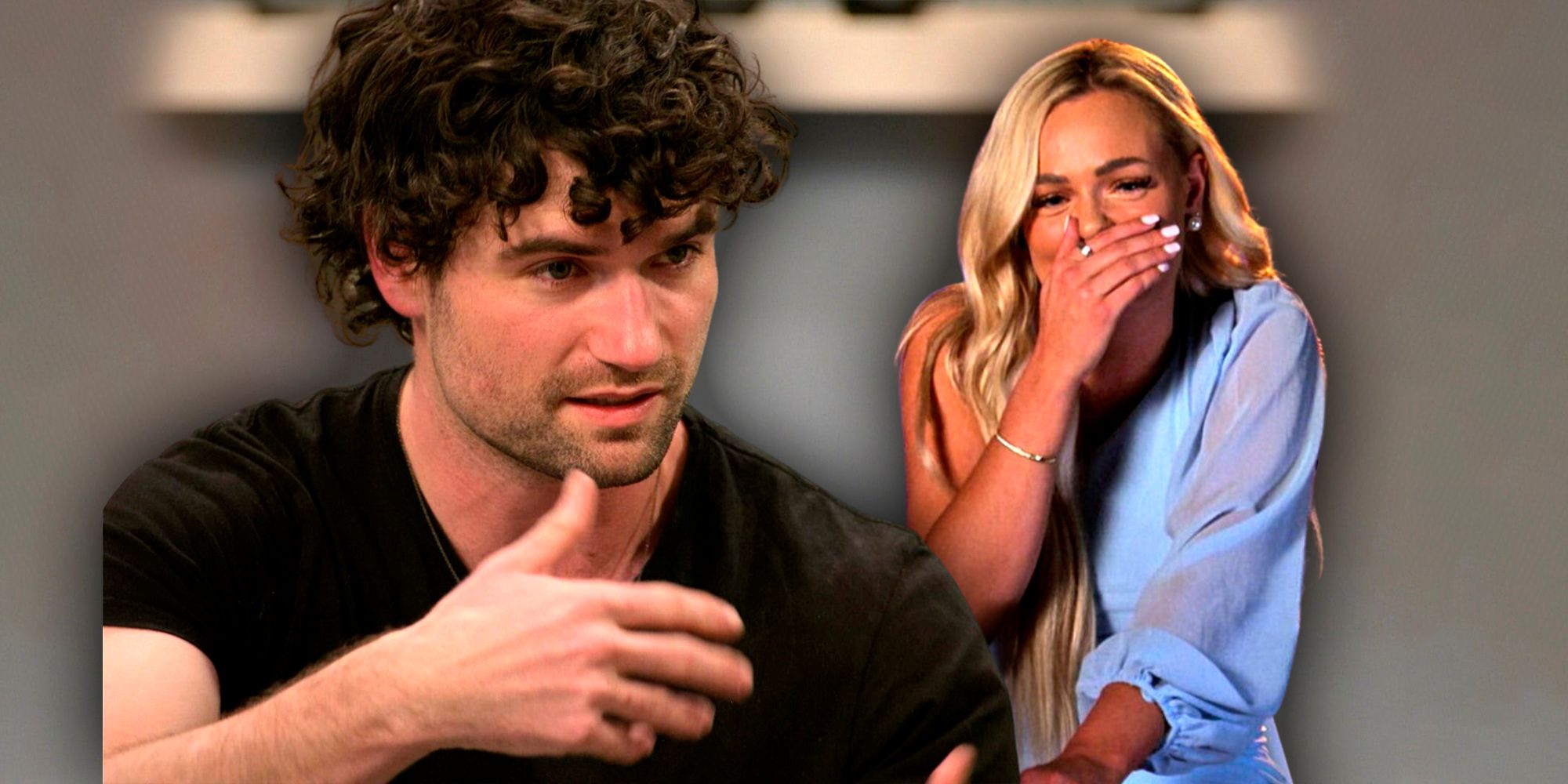Micah: When Love Is Blind To Justice And Hope – A Prophetic Vision
Sometimes, a message from the past can really resonate with our present, you know? We often talk about how 'love is blind,' and while that phrase often brings to mind romantic relationships, there's a much older, deeper sense to it. This idea, in a way, truly echoes through the ancient words of a prophet named Micah. His powerful insights, actually, still offer so much to think about, especially when we consider times when people, perhaps, just couldn't see what was right in front of them.
Micah, a figure from the Hebrew Bible, really delivered a message that was both stark and full of hope. He spoke to a world that, in some respects, seemed to be stumbling in the dark, ignoring very important truths. His words, which came during a rather tumultuous period for the kingdoms of Judah and Israel, painted a picture of judgment, yes, but also offered a profound promise of restoration and a future ruler. It's almost as if he was trying to open people's eyes.
So, we're going to explore Micah's vision, thinking about how his warnings about injustice and idolatry, and his beautiful promises, connect with this idea of 'micah love is blind.' We'll see how his ancient wisdom, you know, still challenges us to look closely at what we value and where we place our trust. It's a journey into history that, arguably, holds lessons for us all, even today.
- Creme De La Creme
- David Bromstad Married
- Red Hot Chili Anthony Kiedis
- Canon G7x Mark Iii
- Slide Rock State Park
Table of Contents
- Introduction: The Prophet Micah and the Blindness of an Era
- Who Was Micah? A Glimpse into a Prophetic Life
- Micah's Message: When Love Is Blind to Injustice
- A Glimmer of Hope: When Love Is Not Blind
- Micah's Enduring Importance: A Call to See Clearly
- Frequently Asked Questions About Micah's Prophecy
- Seeing Beyond the Blindness: A Final Reflection
Who Was Micah? A Glimpse into a Prophetic Life
Micah, a prophet whose words are collected in the sixth book of the twelve minor prophets, was, you know, a very important voice in his time. He wasn't a king or a priest from Jerusalem's grand temple, but rather a resident of Moresheth, a small town nestled in the Judean foothills. This humble background, in a way, really gave him a unique perspective on the issues facing his people. He saw things, perhaps, from the ground up, so to speak.
His prophetic work, actually, spanned several decades, beginning about 735 B.C. and continuing up until about 700 B.C. This period was, arguably, a very busy time for the region. He delivered messages during the reigns of three kings of Judah: Jotham, Ahaz, and Hezekiah. It was a time of significant political and spiritual upheaval, with both the northern kingdom of Israel (also called Samaria) and the southern kingdom of Judah, basically, violating their covenant with the God of Israel. Micah, interestingly, was a contemporary of the much more well-known prophet Isaiah, who lived in Jerusalem. This means, you know, they were both active during the same critical era, often addressing similar concerns, but perhaps to different audiences or with slightly different emphasis.
Personal Details and Bio Data of Micah
| Detail | Information |
|---|---|
| Name | Micah (from Hebrew "Micayehû") |
| Meaning | "Who is like Jehovah?" |
| Origin | Moresheth, a small town in the Judean foothills (Southern Kingdom of Judah) |
| Period | Prophesied roughly 735 B.C. to 700 B.C. (8th century BCE) |
| Reigns Served | Kings Jotham, Ahaz, and Hezekiah of Judah |
| Contemporaries | Prophet Isaiah |
| Focus | Primarily Judah (southern kingdom), some remarks to Israel (northern kingdom) |
Micah's Historical Setting
The historical backdrop for Micah's prophecies was, you know, rather complex. The northern and southern kingdoms had split long ago, and both, in a way, had drifted far from their original commitments. Micah lived in the southern kingdom of Judah, but his words, actually, were directed to both Judah and Israel. He saw firsthand the pride and rebellion that had taken root, causing widespread injustice and idolatry. It was a time when, arguably, many people were, you know, living as if 'micah love is blind' to the consequences of their actions and their spiritual obligations.
- Daisy Edgar Jones Movies And Tv Shows
- Roselyn Sánchez Movies And Tv Shows
- Passion Fruit In Spanish
- How Did Coach Wall Die
- Red Hair Big Boobs
He foresaw, and actually described, the destruction of the lesser towns of Judah, referring to the invasion by Sennacherib in 701 BCE. This was a very real, very tangible threat that loomed over the people. The word of the Lord, as it came to Micah, wasn't just abstract theology; it was, you know, a direct commentary on the political and social realities of his day, warning of impending judgment that was, in fact, already at the doorstep.
The Meaning Behind the Name
The name Micah, actually, comes from the Hebrew word "Micayehû," which, you know, means "who is like Jehovah?" This name itself, in a way, tells us something important about his family. It indicates that men named Micah often had parents who were devout believers in Yahweh. This suggests, perhaps, a deep spiritual heritage, a foundation of faith that likely shaped his own calling and his ability to see beyond the surface issues of his time. It's a name that, basically, asks a profound question, one that his prophecies, arguably, sought to answer through both warning and promise.
Micah's Message: When Love Is Blind to Injustice
Micah's core message, really, was a stark warning. He saw Israel and Judah, in a way, heading down a very dangerous path. Their sins, you know, were rampant, particularly injustice and idolatry. People were, basically, exploiting each other, and they were turning away from the God of Israel to worship other deities. It was a situation where, arguably, 'micah love is blind' to the suffering of others and to the true source of their well-being. This blindness, perhaps, made them insensitive to the very clear moral and spiritual decline happening all around them.
He didn't pull any punches, you know. He prophesied about the judgment to come, a direct consequence of their actions. The vision he saw concerned both Samaria, the capital of the northern kingdom, and Jerusalem, the heart of the southern kingdom. He saw, in a way, the unraveling of their societies because of their choices. It's a powerful reminder that, sometimes, our affections can be misplaced, leading us to overlook what truly matters.
Warnings of Impending Judgment
The warnings Micah delivered were, actually, quite specific and vivid. He described a future where their current way of life would, basically, crumble. He spoke of the destruction that would befall them because of their pride and rebellion. This wasn't, you know, a message of hate, but rather a prophet's desperate plea for his people to see the truth before it was too late. He was trying to shake them out of their spiritual slumber, out of a state where 'micah love is blind' to the impending doom that their actions were inviting.
He pointed out how their leaders, their judges, and even their religious figures were, in a way, contributing to the problem. They were, perhaps, more concerned with personal gain than with justice or truth. This widespread corruption, you know, really fueled Micah's passionate condemnations. He saw a system that was fundamentally broken, and he knew that without a change of heart, disaster was inevitable. Learn more about prophetic messages on our site.
The Destruction of Samaria and Jerusalem
Micah foretold, quite explicitly, the destruction of Samaria and Jerusalem. These were, arguably, the two most important cities in the divided kingdom. Samaria, he said, would become a heap of rubble, its foundations exposed. Jerusalem, too, would face severe consequences. He describes the destruction of the lesser towns of Judah, referring to the invasion by Sennacherib. This was, you know, a very real historical event that underscored the accuracy and urgency of his warnings. It showed that the judgment he spoke of was not just theoretical, but a very tangible threat that was, actually, already unfolding. It's a sobering thought that, sometimes, we are so focused on our immediate desires that we are 'micah love is blind' to the bigger picture, to the long-term repercussions of our choices.
Paronomasia: A Poetic Device of Doom
Interestingly, Micah used a literary device called paronomasia in his passages of doom on the various cities. This is, basically, a play on words, where he would use similar-sounding words to create a poetic and memorable effect, often highlighting the irony or the tragic fate of a place. It's a very clever way, you know, to make a point, to really drive home the message of impending judgment. This stylistic choice, arguably, added a layer of depth and impact to his prophecies, making them even more powerful for his original audience. It's a testament to his skill as a communicator, using language to make people, perhaps, finally see what they had been 'micah love is blind' to for so long.
A Glimmer of Hope: When Love Is Not Blind
Even amidst all the warnings of judgment and destruction, Micah's message wasn't, you know, entirely bleak. He also offered a profound message of hope and restoration. This is where, arguably, the idea of 'micah love is blind' takes on a different meaning—not as human failing, but as a divine love that, in fact, sees beyond the present darkness and offers a way forward. It's a powerful contrast, showing that even when people are spiritually blind, there is a greater love that remains constant and offers a path to healing.
His prophecies, in a way, pointed to a future beyond the immediate troubles, a time when things would be made right again. This message of restoration was, actually, a crucial part of his overall vision. It reminded people that even after judgment, there was still a possibility for renewal and a fresh start. This hope, you know, was a beacon in a very dark time, offering comfort and a reason to persevere.
The Promise of Restoration
Micah foretold a time when the scattered people would be gathered, and justice would, basically, prevail. This promise of restoration wasn't just about rebuilding cities; it was about rebuilding a relationship with God. It spoke of a renewed covenant, a time when the people would, you know, truly understand what it meant to walk humbly, love mercy, and act justly. This vision of restoration, in a way, showed a love that was not blind to their potential, even after all their failings. It was a promise of grace, of a second chance, if they would only open their eyes to it. It really highlights the enduring nature of divine care, even when human beings seem to lose their way.
The Prophecy of Bethlehem and an Eternal Ruler
Perhaps one of the most significant aspects of Micah's message, and a profound example of a love that truly sees, is his prophecy about Jesus Christ’s birth. The book of Micah provides one of the most significant prophecies of Jesus Christ’s birth in all the Old Testament, pointing some seven hundred years before Christ’s birth to his birthplace of Bethlehem and to his eternal nature (Micah 5:2). This is, arguably, an incredibly precise and forward-looking prophecy. It speaks of a ruler who would come from a seemingly insignificant town, yet whose origins were "from ancient times, from eternity." This future ruler, you know, would bring true peace and lead his people. It's a beautiful picture of hope, showing a divine plan unfolding, a love that sees far into the future, even when the present seems, well, rather bleak. It’s a prophecy that, basically, illuminates a path for those who might otherwise be 'micah love is blind' to the ultimate hope.
Micah's Enduring Importance: A Call to See Clearly
Micah’s importance, you know, really can't be overstated. His prophetic text warns Israel and Judah of impending judgment due to their sins, emphasizing injustice and idolatry. But it also, crucially, offers hope through the promise of restoration and a future ruler from Bethlehem. This dual message, in a way, makes his book incredibly relevant even today. It reminds us that actions have consequences, but also that there is always a path to redemption and renewal. It's a call to look beyond the immediate, to really see the bigger picture, and to understand that true love, perhaps, is never truly blind to justice or hope.
His words challenge us to examine our own societies, our own lives, and ask if we, too, are sometimes 'micah love is blind' to the injustices around us, or to the promises of something greater. The clarity of his vision, arguably, still cuts through the noise of our modern world, urging us to seek righteousness and to hold onto hope. His legacy, basically, is a powerful reminder that even in times of great darkness, a message of truth and light can shine through. You can read more about the Book of Micah to truly understand its depth. And for more related insights, check out this page on biblical prophets.
Frequently Asked Questions About Micah's Prophecy
Here are some common questions people have about the prophet Micah and his enduring message:
How did Micah address the idea of "love is blind" in his warnings to Judah and Israel?
Micah, in a way, addressed the idea of "love is blind" by highlighting how the people's misplaced affections—their "love" for worldly gain, injustice, and idolatry—made them blind to God's covenant and the coming judgment. He showed how their spiritual blindness led to societal decay and a disregard for justice. It was, arguably, a love that prevented them from seeing the truth.
What hope did Micah offer when people seemed "blind" to God's justice?
Even when people seemed "blind" to God's justice, Micah offered a message of hope and restoration. He promised that after judgment, there would be a time of renewal and gathering. Most significantly, he foretold the birth of an eternal ruler from Bethlehem, a powerful act of divine love that would ultimately bring true justice and lasting peace, showing a love that sees beyond immediate failings.
Why is Micah's prophecy about Bethlehem so important, and how does it show a love that sees beyond current struggles?
Micah's prophecy about Bethlehem (Micah 5:2) is, you know, very important because it precisely foretold Jesus Christ's birthplace some seven hundred years in advance. This prophecy, arguably, shows a profound love that sees beyond current struggles and human failings, revealing a divine plan for redemption. It highlights that even in times of darkness, there is a long-term vision of hope and a promise of an eternal ruler who would bring salvation, a love that is anything but blind to humanity's deepest needs.
Seeing Beyond the Blindness: A Final Reflection
So, the story of Micah, the prophet from Moresheth, truly gives us a lot to think about. His words, which came during a time of pride and rebellion, really underscore how easy it is for people, in a way, to become spiritually blind. They were, you know, so caught up in their own ways that they couldn't see the injustice they were causing or the warnings that were right there. His message, basically, serves as a powerful reminder that sometimes, our 'love' for the wrong things can make us truly blind to what matters most. But, importantly, his prophecies also offer a profound counter-narrative: a message of hope and restoration, a divine love that, in fact, sees everything and offers a path to healing and renewal. It's a call, arguably, for us to open our own eyes, to truly see clearly, and to embrace a future built on justice and genuine hope.
- Daisy Edgar Jones Movies And Tv Shows
- How To Fake Sick
- Visual Kei Dress To Impress
- Remote Iot P2p Download Android Free
- Jojo Siwa Magazine Cover

Love Is Blind's Paul Shares Cryptic Reply To Micah’s Emotional Post

Love Is Blind: Micah Reveals If She’s Still Friends With Shelby

Love Is Blind's Paul Defends Micah & Irina Against "Malicious" Criticism